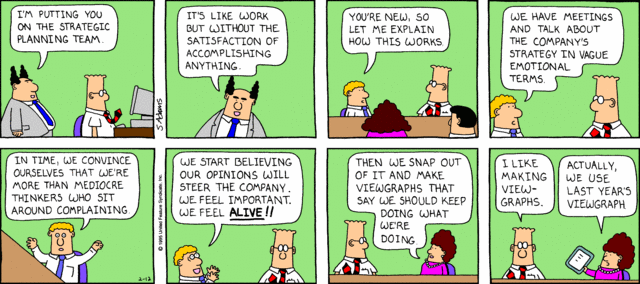People Purpose
Having grown up as more of free spirit in theater (which I really want to spell theatre) and reading as many books as I could possess momentarily (still a vice) math came later with the move into sales and marketing in the 80's. Working with small businesses and entrepreneurs one had to show the expected ROI and the bottom line along with developing relationship and trust to meet sales goals. Even now the major portion of my time at work not typing data/instructions without support staff is spent crunching data to see if the sale makes sense to the client. It always makes sense to the organization (at least in my case). Yet in engaging my graduate and undergraduate students I am overly passionate about two things:
Nothing overly prejudicial about MBA's but what was taught in most programs from the 1970's through today created the global financial crisis, dramatically increased poverty, social injustice and even the Arab Spring. Crunch the data down to the minute detail of quarterly profits so the shareholder's will be happy, the - Don't confuse academic language in peer reviewed journals or theory with actual practice in the world of teams and organizations;
- Learn to understand the math or you'll be out of business, but never forget that every number in some way represents an employee, a team, a town, a community or some other human impact.
upper management get their bonuses and never mind the layoffs which lead to higher unemployment, less funding for education and police departments, and neighborhood deterioration. By basic math, some organizations could have saved 10,000 jobs if the CEO would have simply gone from 400 million to $350 million in annual salary (and some have or even more). That would have been real leadership.
Of course, teaching in a Master's of LEADERSHIP program while pursuing the PhD in Organizational Psychology that kind of thinking comes naturally. It's a passion for people purpose, because all of the profits in the world at the cost of community will only buy one so many desert islands to hide from the increasing pain and suffering being created and ignored along the way. Not by everyone or every major corporation of course because there are many shining examples. Well, some at least. But if one can't see far enough into the future from our present paths to see the social inequality causes of the Arab Spring approaching Western societies then spending time studying history as well as in soup kitchens, homeless shelters, and neighborhoods far less fortunate than our own is required. Doing something is even more important.
Roman Krznaric below talks about the age of outrospection in the current era as opposed to the "me" philosophy of the last forty years. Worth consideration, a listen or reading some of his work if seeking sustainable growth and a better tomorrow, today.





Comments
Post a Comment
Thank you for sharing your worldview.